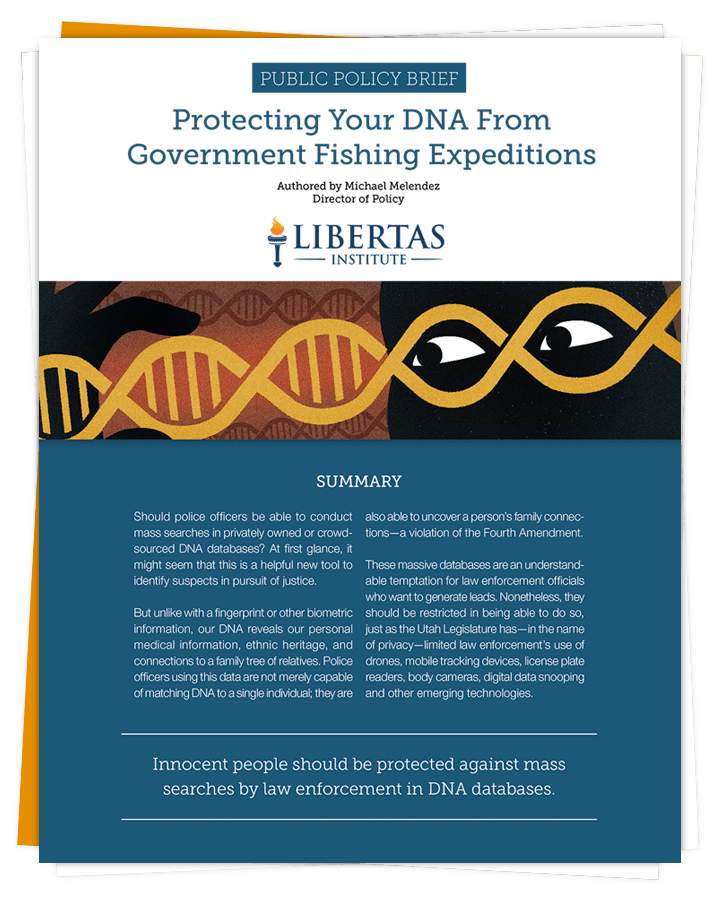Authored by Michael Melendez, Director of Policy
 Should police officers be able to conduct mass searches in privately owned or crowd-sourced DNA databases? At first glance, it might seem that this is a helpful new tool to identify suspects in pursuit of justice.
Should police officers be able to conduct mass searches in privately owned or crowd-sourced DNA databases? At first glance, it might seem that this is a helpful new tool to identify suspects in pursuit of justice.
But unlike with a fingerprint or other biometric information, our DNA reveals our personal medical information, ethnic heritage, and connections to a family tree of relatives. Police officers using this data are not merely capable of matching DNA to a single individual; they are also able to uncover a person’s family connections—a violation of the Fourth Amendment.
These massive databases are an understandable temptation for law enforcement officials who want to generate leads. Nonetheless, they should be restricted in being able to do so, just as the Utah Legislature has—in the name of privacy—limited law enforcement’s use of drones, mobile tracking devices, license plate readers, body cameras, digital data snooping and other emerging technologies.




